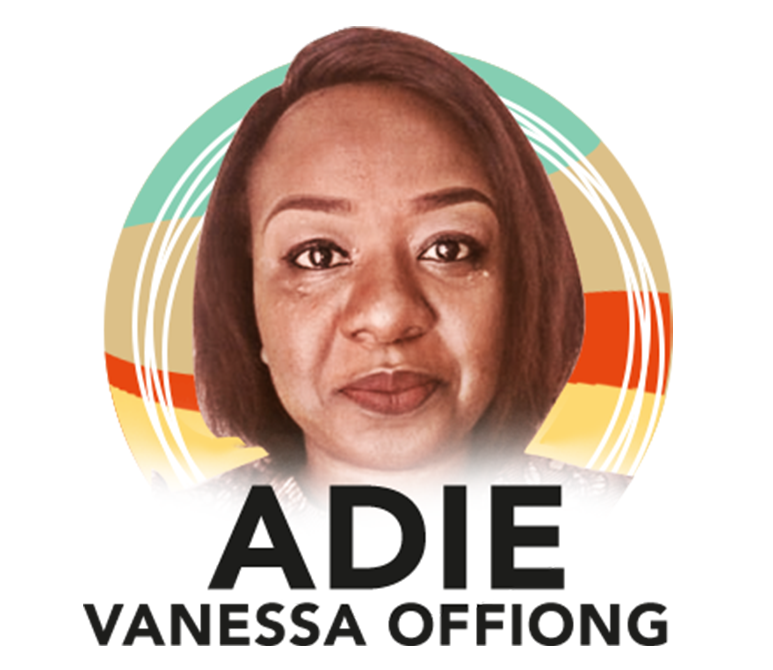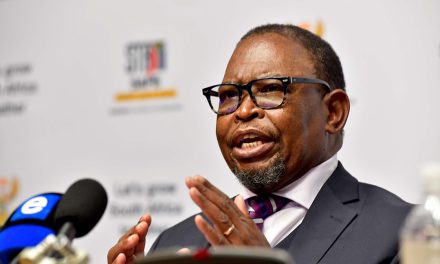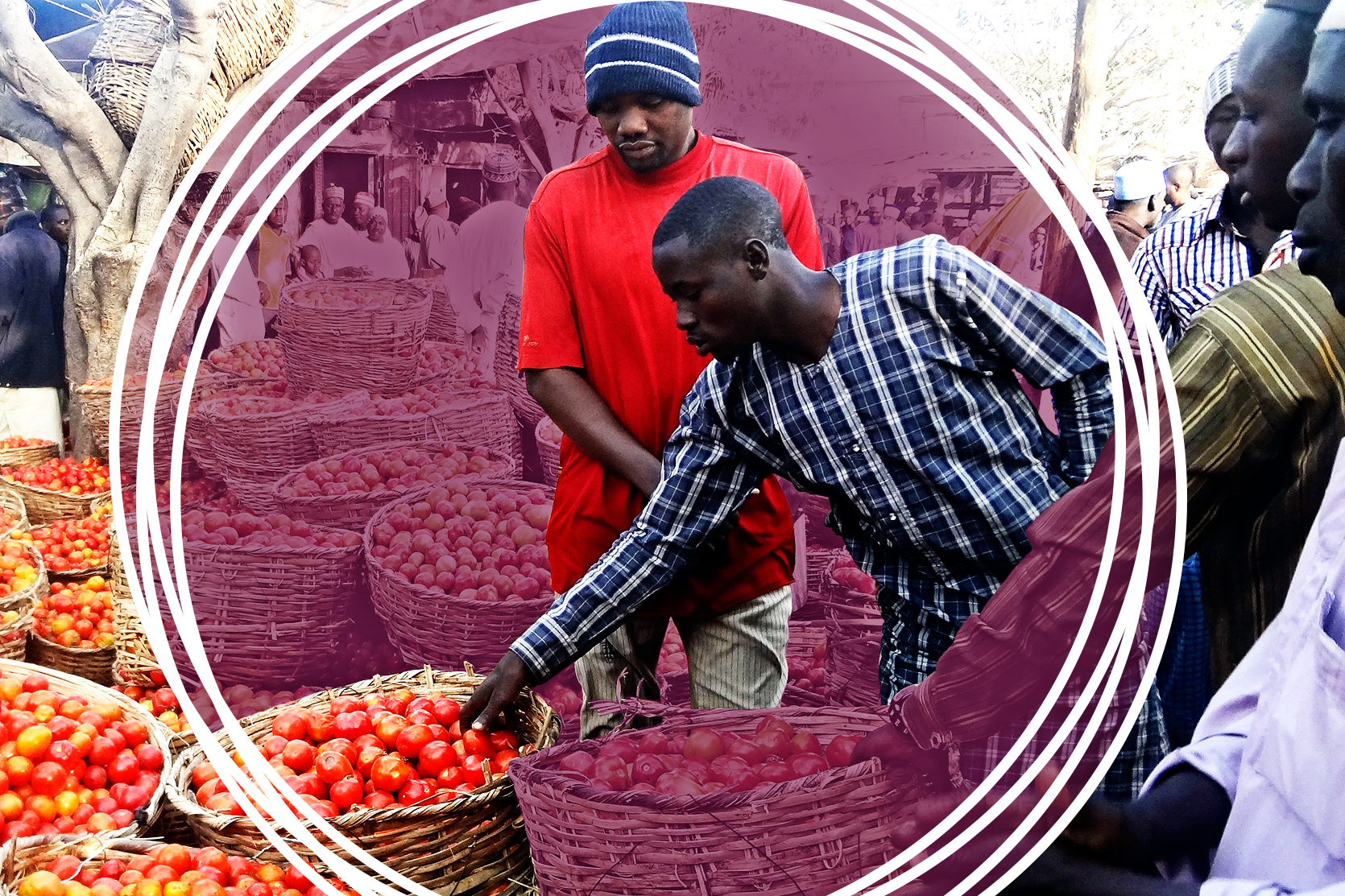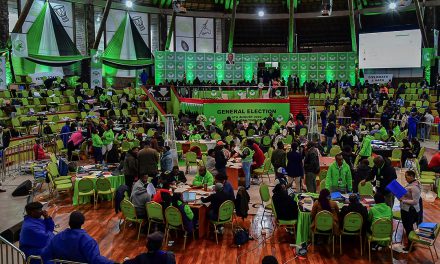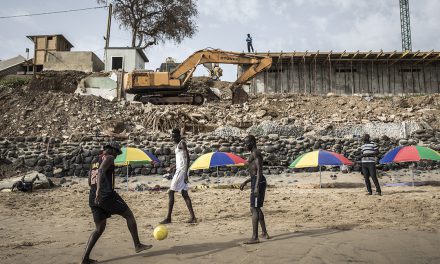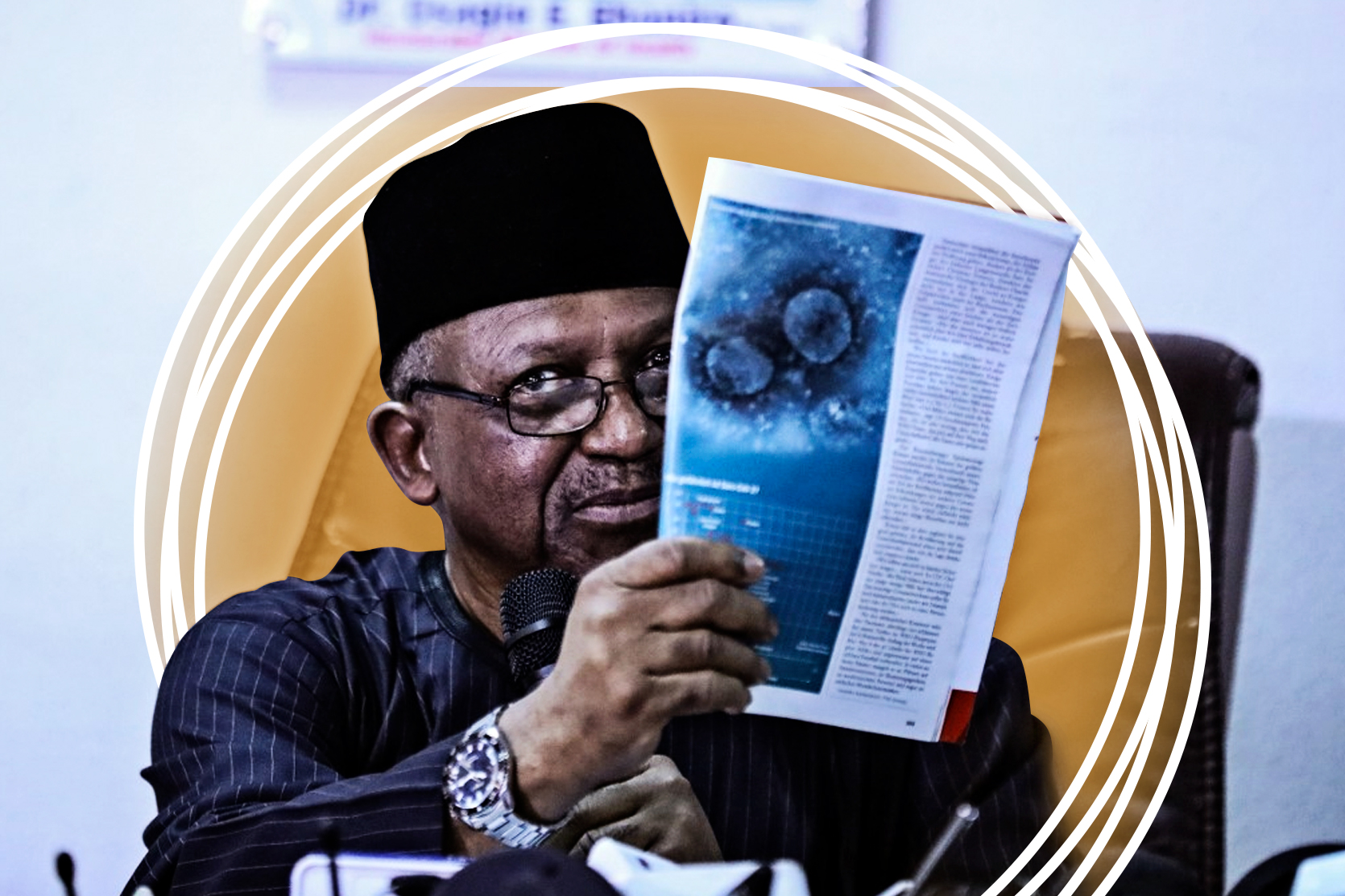
The COVID-19 pandemic came with its own set of rules and regulations, which anyone who chose to disobey, did at their own risk. Many of these rules infringe on rights, across the board. Governments appear to have taken advantage of the crisis to prohibit or restrict all manner of things, including public gatherings.
The pandemic has also ushered in a difficult time for journalists, who have to try to do their jobs in the face of a new, unspoken rule: “Thou shalt not criticise thy leaders.” Between March and May this year, for example, there were no fewer than 10 reported assaults on journalists in Nigeria. Journalists have also lost their jobs.
The pandemic has also ushered in a difficult time for journalists, who have to try to do their jobs in the face of a new, unspoken rule: “Thou shalt not criticise thy leaders.”
On 26 March, Governor Nyesom Wike of Rivers State in Nigeria’s south, sacked Vincent Ake, general manager of the Rivers State Newspaper Corporation. No reason was given, but it has been reported that Ake had published a report on the first case of COVID-19 in Rivers State without getting approval from the taskforce on coronavirus set up by the state government.
Next door, in Imo State, Angela Nkwo-Akpolu, of Leadership newspaper was assaulted and her iPad seized on 28 March by personnel from the Department of State Security. According to a statement by the Media Rights Agenda (MRA), Nkwo-Apolu was attacked while taking pictures of a hotel in Owerri where guests had been forcibly quarantined – allegedly because the hotel had not complied with government directives on checking the spread of the coronavirus.
Further south, the chairman of the Delta State Council of the Nigeria Union of Journalists (NUJ), Michael Ikeogwu, and Mathew Omonigo, a journalist with the Daily Post, were beaten up on 1 April by members of the state Environment Task Force. This happened as they were monitoring the stay-at-home order aimed at curtailing the pandemic’s spread.
Michael Ikeogwu and Mathew Omonigo were beaten up on 1 April by members of the state Environment Task Force.
Ikeogwu said they were held for more than 45 minutes by overzealous officials. “It took the swift intervention of the chairman of the Environment Task Force … to free us,” he said.
On 2 April, police arrested 12 journalists filing their COVID-19 reports at the NUJ secretariat in Adamawa State in Nigeria’s north-east. They were accused of breaking lockdown rules. The state NUJ chairman, Ishaka Deden, said he was “very shocked to see three trucks loaded with armed policemen coming to disrupt the peace of the journalists who were on assignment waiting for an update from the disease control centre.”
On April 22, Governor Dave Umahi of Ebonyi State, south east Nigeria, barred two journalists from state functions for life. In a live state-wide broadcast Umahi alleged that the journalists habitually wrote negatively about the state. He said he didn’t know why his officials had allowed the journalists to do this, and added that: “You have the pen, we have the koboko. Let’s leave the court alone.”
“You have the pen, we have the koboko.” – Governor Dave Umahi
These are threats reminiscent of Nigeria’s military dictatorship era. The koboko is a whip made of cowhide, and during the military dictatorships it was used by military officers “to discipline the unruly.” The governor’s remarks were greeted with wide condemnation which forced him to soft pedal, describing the dissension as a case between “a father and his son,” and unintentional.
Kufre Carter, a journalist with XL 106.9 FM, in Uyo, the capital of Akwa Ibom State, was arrested on 27 April and arraigned in court two days later on a charge of defamation. He had called out the state’s health commissioner, Dominic Ukpong, on Facebook for mishandling the COVID-19 pandemic. Ukpong had questioned the number of cases confirmed in the state by the Nigeria Centre for Disease Control (NCDC).
Carter was detained for a month by Nigeria’s State Security Services (SSS) and denied access to his lawyer, Inibehe Effiong, and his family. Effiong secured a High Court order to reduce his bail from N3 million to N200,000, supported by a “surety” from a prominent person within the jurisdiction of the court. He was eventually released on 27 May after the authorities had ignored a court order to free him on bail.
Carter was detained for a month by Nigeria’s State Security Services (SSS) and denied access to his lawyer.
The next day, on 28 April, Emma Bricks Oko, publisher of the online magazine brickswrite.com.ng, was arrested by members of the COVID-19 Joint Task Force, which includes members of the police. Oko was spotted filming their violent enforcement of the lockdown on commercial motorcyclists in Abuja, Nigeria’s capital. He was charged with obstructing the work of the task force. A magistrate sentenced Oko to three hours’ community service and a N5,000 fine.
The authorities’ brazen disregard for the law has been condemned by civil society organisations. For one thing, it was clear that the relevant authorities had failed to adequately communicate the status of journalists to their members, says Maxwell Kadiri, a senior legal officer with the Open Society Justice Initiative, which is part of the Open Society Foundations network, founded by George Soros. Journalists, he noted, play a vital role in disseminating information, especially in the context of public communication on the pandemic.
Journalists play a vital role in disseminating information, especially in the context of public communication on the pandemic.
Kadiri’s organisation advocates for the adoption and effective implementation of freedom of information laws across Africa. Commenting on Ake’s firing, he said there had been some cases where information provided by the NCDC had to be withdrawn after challenges from state and other government organisations. Journalists were within their rights to publish NCDC figures, given the fact that the NCDC has primary responsibility for such issues, he told Africa in Fact.
Worryingly, some government organisations see fit to accuse journalists of disseminating disinformation and misinformation. Apparently, it is convenient to make such allegations when the government is shown in a bad light, as with the case of Carter in Akwa Ibom State. If allowed to continue, this could become a trend beyond the pandemic, Kadiri says.
Nigeria’s legislation only covers issues relating to false information, and does not address disinformation – information disseminated with the deliberate intent to mislead – Kadiri adds. “I don’t know of any law that speaks to the exact language of disinformation. So, we don’t even have clarity from a legal standpoint.” The onus should be on the state to prove any claims of disinformation, he argues.
“When journalists become afraid, and when the government is allowed to get away with this level of highhandedness, the chances are that there will be severe adverse consequences for freedom of information across the board,” he told Africa in Fact.
“When journalists become afraid, and when the government is allowed to get away with this level of highhandedness, the chances are that there will be severe adverse consequences for freedom of information across the board” – Maxwell Kadiri
One outcome of this approach would be that, the only information allowed would be that, which shows the government in a good light. Section 22 of the 1999 Constitution (as amended) clearly stipulates that “the media has a responsibility to hold the government accountable to the people.” This is supported by further provisions of the FOI Act.
UN Secretary-General Antonio Guterres has noted that the pandemic has brought about a wave of human rights violations around the world. It has brought “a tsunami of hate and xenophobia, scapegoating and scare-mongering,” he said, appealing for “an all-out effort to end hate speech globally. The virus threatens everyone. Human rights uplift everyone.”
The African Centre for Media and Information Literacy (AFRICMIL), Rule of Law and Accountability Advocacy Centre (RULAAC) and Human Environment Development Agenda Resource Centre (HEDA) have jointly condemned the acts noted above, as well as others. “Independent journalism, citizen reporting, open public discourse and the free flow of information are indispensable in the global effort to counter COVID-19,” they said.
Will the Nigerian government heed these calls and help to ensure that the pandemic does result not in journalists becoming an endangered species in Nigeria?
We’d love to hear from you! Join The Wicked Conversation by leaving your comments below, or send your letter to the editor to richard@gga.org.
Adie Vanessa Offiong is an award-winning journalist in Abuja, Nigeria, with experience in investigative, science and development journalism. She is member of the Health Systems Global, African Investigative Publishing Collective and of the Center for Collaborative Investigative Journalism. Vanessa was the winner of the 2019 Africa Media Development Foundation (AMDF) Journalists of the Year Award and was the only female finalist of the 2019 Continental Journalism Awards on the African Union Charter.


